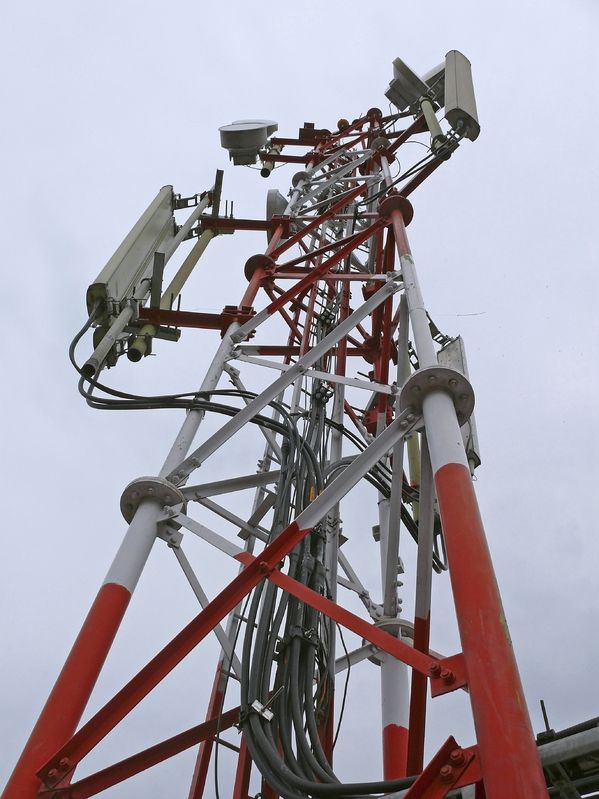I was briefly quoted in this article by Digital News Asia.
Evidence Act: An issue to be solved technically, not legally: MOL
- MOL Friendster Hotspots says tech should be used to address anonymity on the Net, not the law
- Changes to the controversial Malaysian Evidence Act do not affect network facilities providers
THE owner and operator of one of the largest Wi-Fi networks in Malaysia believes that making amendments to the law isn’t the right response to address certain cyber security concerns expressed by the government.
Ganesh Bangah, group CEO of MOL Global, stressed that issues such as tracking who is responsible for putting up malicious, defamatory and seditious comments in cyberspace is essentially a technological issue, and as such, must be addressed in a technical way.
“Firstly, I do not think you can find the solution using the law. [I believe] you should use technology [instead],” the outspoken entrepreneur told Digital News Asia in an interview.
 Bangah (pic) was responding to the recent news about the changes made to the Evidence (Amendment) (No 2) Act 2012, which was amended in April. The changes allow authorities to go after Internet users for any content posted through their registered networks or data processing devices.
Bangah (pic) was responding to the recent news about the changes made to the Evidence (Amendment) (No 2) Act 2012, which was amended in April. The changes allow authorities to go after Internet users for any content posted through their registered networks or data processing devices.
In May, local daily theSun reported that the amended law has serious implications on Internet use as the owner of a site or device is presumed guilty and has to fight to prove his innocence.
“What this means is, if an anonymous person posts content said to be offensive on your Facebook wall, or if someone piggybacks your Wi-Fi account and uploads a controversial document, you will be immediately deemed the publisher of the content and subject to prosecution under the relevant laws such as the Sedition Act,” theSun noted in its May 21 report.
The amendment, which was passed in Parliament without debate, created an uproar particularly in cyberspace. Netizens have been blogging and posting their opposition to the amendments on Facebook and Twitter.
To date, a Facebook page opposing the change has been created and an online petition, signed by over 3,330 people, has been handed to a Deputy Minister in the Prime Minster’s department.
Some have noted that changes to the law, which were confirmed by lawyers Digital News Asia spoke to, would instead harm innocent victims of identity theft and hacking, while getting no closer to shoring up enforcement or prosecution powers against the actual perpetrators.
Bangah said he was against the burden of responsibility put by Internet users on service providers and mobile operators. But despite this, he said MOL Friendster Hotspots would comply with the law.
MOL Global operates Friendster Hotspots, which provide free Wi-Fi services to various restaurants in Malaysia including Starbucks Café, Kenny Rogers Roasters, Wendy’s, Papa John’s Pizza, Krispy Kreme Doughnuts and Old Town White Coffee.
Revealing that MOL is now trying to figure out a way to register users so that it would know what its patrons are doing while surfing on its Wi-Fi infrastructure, Bangah said, “With this registration and authentication, we will know what they are doing and this will defer our liability,” he said.
In tandem with this, Bangah also said cybercafes need to be authenticated and MOL will likely add a new set of terms and conditions to which patrons must agree.
Acknowledging that this would hinder the user experience, Bangah said MOL is toying with the idea of using the MyKad, the Malaysian Identity Card, to authenticate Malaysians.
Foreigners would be asked to possibly use their passports as an instrument for verification, while foreign students would be asked to use their International Student Card, he added.
“The new terms and conditions will basically release us from any liability. We have to make this the new conditions to use free Wi-Fi moving forward,” Bangah said.
Operators not liable
Meanwhile, two telecommunication network facilities providers (NFPs) say the recent amendments to the Evidence Act 1950 will not impact them as they are not considered to be publishers or re-publishers of content.
Telekom Malaysia (TM) noted that the amendments should not affect itself as it should not be held liable since the company only provides Internet connectivity. The incumbent telco added that it also does not impose any control on the manner of usage of the connectivity.
 In an email reply to questions from Digital News Asia, the state-backed operator said, “As an Internet Service Provider (ISP), TM provides connectivity in support of an enhanced digital lifestyle and in providing convenience to its subscribers when they are outside their homes or on-the-go.
In an email reply to questions from Digital News Asia, the state-backed operator said, “As an Internet Service Provider (ISP), TM provides connectivity in support of an enhanced digital lifestyle and in providing convenience to its subscribers when they are outside their homes or on-the-go.
“TM has established more than 22,800 TM Wi-Fi locations nationwide as a value-added service to fixed broadband services that TM provides to its subscribers. Our existing terms and conditions of services already make provision for the customers to take all measures necessary to protect their own data, systems and networks.
“It also warns our users not to use the service for any unlawful and unsolicited electronic messages that are obscene, threatening or offensive.”
Similarly, another NFP Digital News Asia contacted noted that its initial understanding is that it should not be affected by Section 114A of the Evidence Act because a subscriber is deemed to have published the contents, which may be the basis of criminal or civil offence, as service providers themselves are not the actual publishers or re-publishers.
The NFP, who declined to be named, however said, “We believe that efforts to promote general awareness among the public on the implications of publishing certain material may be a better approach in deterring inadvertent publication of seditious or defamatory material, instead of the present amendments which may deter Internet usage.
“We already maintain a high degree of compliance to local regulations when rolling out networks. Naturally, the establishment of any additional security and authentication requirements will of course increase the cost of deployment, but we will always continue exploring complementary technologies and evaluate future plans based on business needs.”
Asked if TM planned to change any of its existing terms and conditions to its broadband services, a TM spokesperson said that it has the right to terminate the service if the customers are in breach of the agreement, including where a customer has performed any unlawful acts.
“We may consider amending certain terms and conditions to further protect our interests and if there is such an amendment, the same will be communicated to all existing customers.”
A legal expert Digital News Asia spoke to noted said the changes in the Evidence Act did not affect NFP because the amendments did not [specifically] say so.
Foong Cheng Leong, Kuala Lumpur Bar information technology committee co-chairman, noted that under S114A(2), only those who are registered with a network service provider as a subscriber of a network service will be affected.
Asked if this was fair, Foong said, “Certainly not. Unless the government puts a specific provision to say all outlets providing Wi-Fi services are not deemed to be publishers and/or liable, but currently, there is no such exception in place.”
[Additional reporting by Karamjit Singh]
Leave a Reply